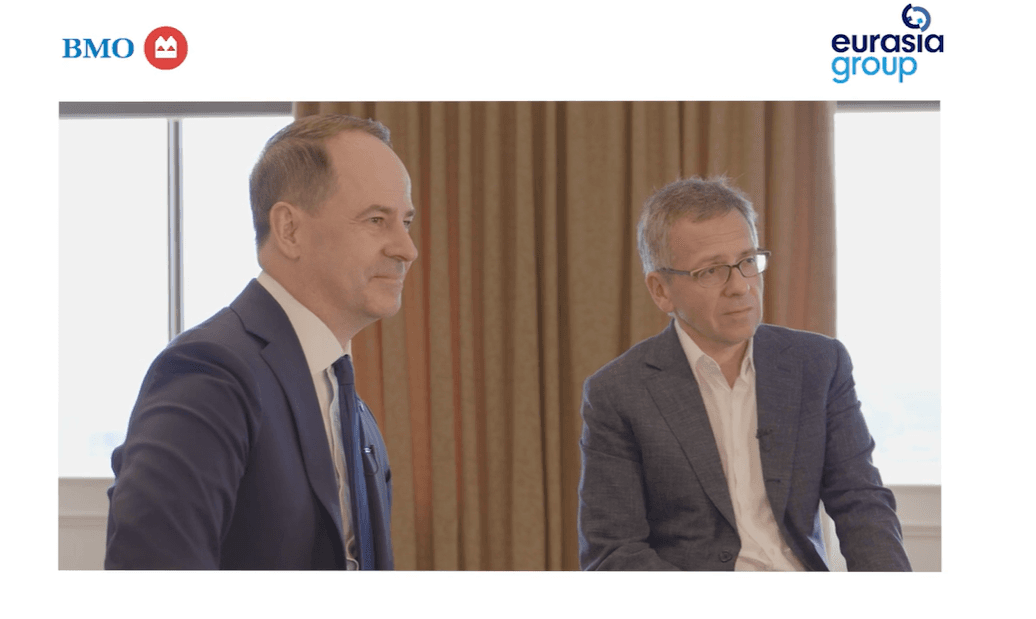Darryl White, CEO of BMO Financial Group, and Ian Bremmer, President and Founder of Eurasia Group and GZERO Media sat down to discuss the “North American Advantage”, and what having the strongest bilateral relationship in the world can achieve.
Darryl White & Ian Bremmer on the Importance of the US-Canada Relationship
